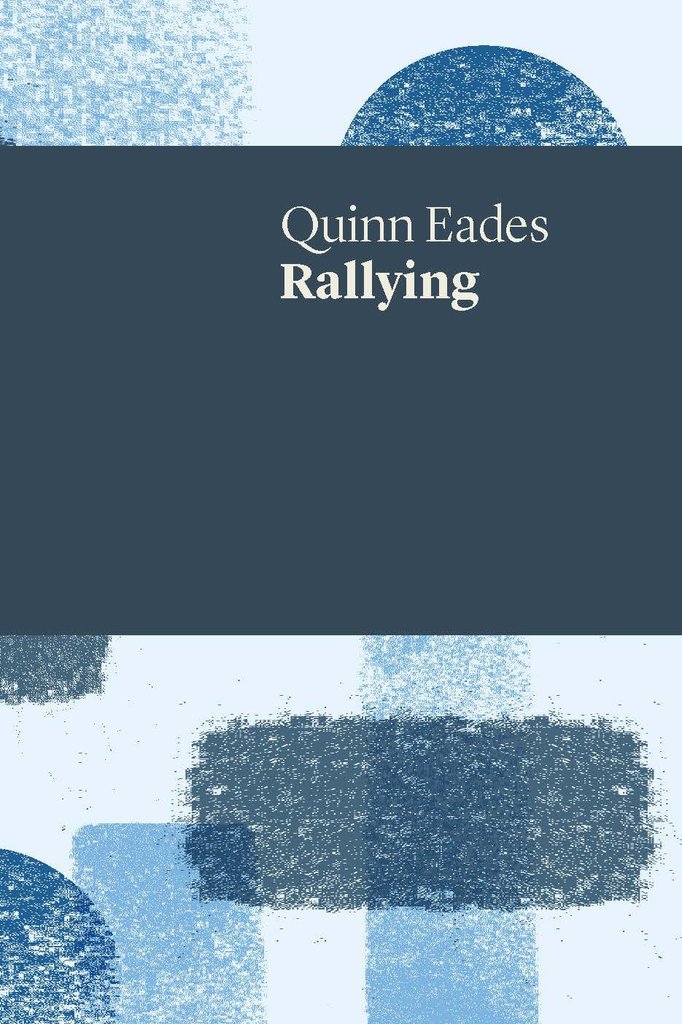
Rallying by Quinn Eades
UWA Publishing, 2017
Les Belles Lettres by Gabrielle Everall
General Chaos Publishing / Girls on Key, 2017
St Ignatius of Loyola is supposed to have said: ‘Give me a boy until the age of seven, and I will own the man’. Well, the Baptists had me for a lot longer than my first seven years, and subsequently, I have lived a most conventional life. My politics might be progressive but my instincts are terribly conservative. These two books are indispensable because, in bearing witness to the scarring caused by homophobia, inequality and unsafe socialisation, they disrupt prejudice, including my own, and celebrate plurality. Eades and Everall are not just great poets. They are buoys of hope.
In his recent launch speech for Alan Wearne’s These Things Are Real, at Melbourne’s Collected Works Bookshop, Philip Salom praised Wearne for having the courage to go out into the world, thus rejecting contemporary poetry’s obsession with the self. Now, Wearne writes unforgettable dramatic monologues, creating actors that fizz with all the messiness and glory of life, but he is not a psychologist or confessor, and one could argue that all his creations are in fact versions of himself. Ultimately, what we are all left with is our own way of being in this thorny world. This is perhaps what the Melbourne singer-songwriter and poet, Brendan Bonsack, had in mind recently when he posted on Facebook about writing the ‘I’ in poetry. In his post, Bonsack included this gem by the indomitable Ania Walwicz: ‘I want to be a camera. I want to catch my life. And keep it’. Both Quinn Eades and Gabrielle Everall accept this challenge by Walwicz, and while they have very different approaches to writing ‘the self’, their poetry shines with all the dramatic tensions and juxtapositions of Wearne.
Eades employs little of Everall’s dazzling and far-ranging techniques of imagery and historical allusion, but the way in which he centres his highly fraught and revealing recounts in such direct and plain language are remarkable. In ‘Echo’ Eades writes:
Repetition. When I take away punctuation I move to repetition. Like this. What is missing when I write my child hood what I leave out is what should come what I leave out is what should come out from this pen this pen writes what is missing when I write my child hood without punctuation I resort to repetition which is also reiteration this happened this happened this happened stop repeating yourself is what I think because what is repetition but an echo why do you ache towards echo
There is desperation in these lines; a searching and precise awkwardness captured in those skilfully managed line divisions. The obliterated punctuation markers signal such vulnerability to the damaging and often-repeated injustices inflicted on a child unable to conform to expectations. This is poetry as a bullied kid’s angst. And while the adult ‘Quinn’ might know that it is worth hanging in there to the end, these poems often spin on the edge of self-harm and excruciating pain. Eades tells us elsewhere that in this ‘ache towards echo’ he learnt to ‘carry himself like a wound’: ‘I learnt loneliness better than I knew my own skin. I wanted to sleep, and sleep, and sleep. Everything I was, was emptiness and sleep’. Later he reads Sylvia Plath who writes: ‘the blood jet is poetry’ and knows that he must offer this correction:
blood doesn’t jet it seeps it leaves traces on brick, on iron, on wood it pushes up through the bandage weave it holds the wound redly open it congeals and remembers night alley the thunk of the body against surfaces that do not give
But self-harming is only part of the story. Eades adopts the name of ‘Quinn’, after giving birth to children, after the hysterectomy, ‘after she couldn’t stay at one end of the gender binary anymore’. Eades tells us:
In the beginning it feels important for all of them to call her by her next chosen name, but she doesn’t insist. She waits. She writes. She slides. She pauses the hunt for the next name. She takes them all. She is PK/Francis/Stevie/Rayne/Persephone/Sarah/Mama/Karina/Quin n. She takes them all and holds them inside her skin. She is all names, for herself: she is no one named.body under blanket gaps in gums gone the mattress is off the floor the children unfold writing is written baths are taken each name holds its own
It is this calling, this naming, that changes she to he. Because Quinn is the name that is next, that is last.









